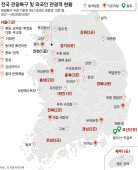‘Dignified diplomacy’ amid escalating Korea-China tensions
‘Dignified diplomacy’ amid escalating Korea-China tensions
Posted June. 13, 2023 08:15,
Updated June. 13, 2023 08:15
The Korean government has announced its commitment to strengthening its stance on "dignified diplomacy" amidst escalating tensions between Korea and China, triggered by recent disrespectful comments made by Chinese Ambassador to Korea Xing Haiming. A senior official emphasized Monday that Korea would not ignore China's overbearing remarks, stating, "Our China policy will evolve in a manner that preserves the pride of the Korean people." Regarding the promotion of high-level exchanges between Korea and China, including a summit meeting, the official added, "We will continue to propose such engagements but will exercise patience. Time is on our side."
The tensions between Korea and China seem to be escalating into a battle of egos between the two governments. While Korea's Ministry of Foreign Affairs summoned the Chinese ambassador and warned against his inappropriate remarks, highlighting the potential interference in domestic affairs and neglect of his ambassadorial role, Beijing's foreign ministry also called in Korean Ambassador to China Chung Jae-ho later to express its own complaint. Although the root of the conflict lies in China's arrogant and high-handed behavior, China has shown a dismissive attitude towards Korea, intentionally fueling the tension. It can be said that China's "wolf diplomacy," characterized by a display of strength, which had momentarily subsided, has once again reappeared in its approach towards Korea.
Therefore, the government's emphasis on "dignified diplomacy" is both understandable and necessary. China resorted to various disgraceful retaliatory measures against South Korea in response to the deployment of the Terminal High Altitude Area Defense (THAAD) system aimed at deterring North Korea's nuclear weapons. Furthermore, China attempted to exert control over South Korea by maintaining a ban on Hallyu (Korean Wave) even after diplomatic rapprochement with the former Moon Jae-in administration. It is unrealistic to expect a mutually respectful bilateral relationship if such absurd diplomatic behavior continues unchecked. Hence, a principled response to China's arrogance is crucial at this juncture.
However, it is important to note that this ego-driven diplomacy could backfire and lead to adverse effects if it transforms into an inflexible stance that exploits growing anti-China sentiment domestically. Specifically, it is concerning that such a stance might become intertwined with the political strife between the ruling and opposition parties. During the former Moon administration, a similar emphasis on "dignified cooperative diplomacy with the four neighboring countries" was promoted, but it seemed to prioritize dignity only in dealings with Japan while being dragged along by North Korea and China. It is crucial that the current administration charts a different course from its predecessor, avoiding a path that would only result in further political strife and failure.
Foreign policy cannot exist independently of domestic politics. Public opinion serves as one of the most crucial factors in shaping foreign strategy. However, this does not imply that diplomacy should be dictated by politics and public sentiment. Alongside decisive action, it is equally essential to develop a nuanced strategy grounded in rational cost-benefit analysis and the capacity to manage risks, thereby alleviating public anxiety and anger. Diplomacy is not a matter of winning or losing, but rather of weighing gains and losses. It is now imperative for Korea and China to engage in genuine diplomacy that aims to reduce tensions and seek constructive solutions.
Headline News
- N. Korea redefines S. Korea as ‘hostile state’ in revised constitution
- Samsung develops graphic DRAM with industry-leading capacity and speed
- Three questions allegedly leaked via text message during Yonsei Univ. essay test
- China to inject 340 trillion won in loans to support real estate sector
- Dodgers beat Mets to take 2-1 lead in NLCS







